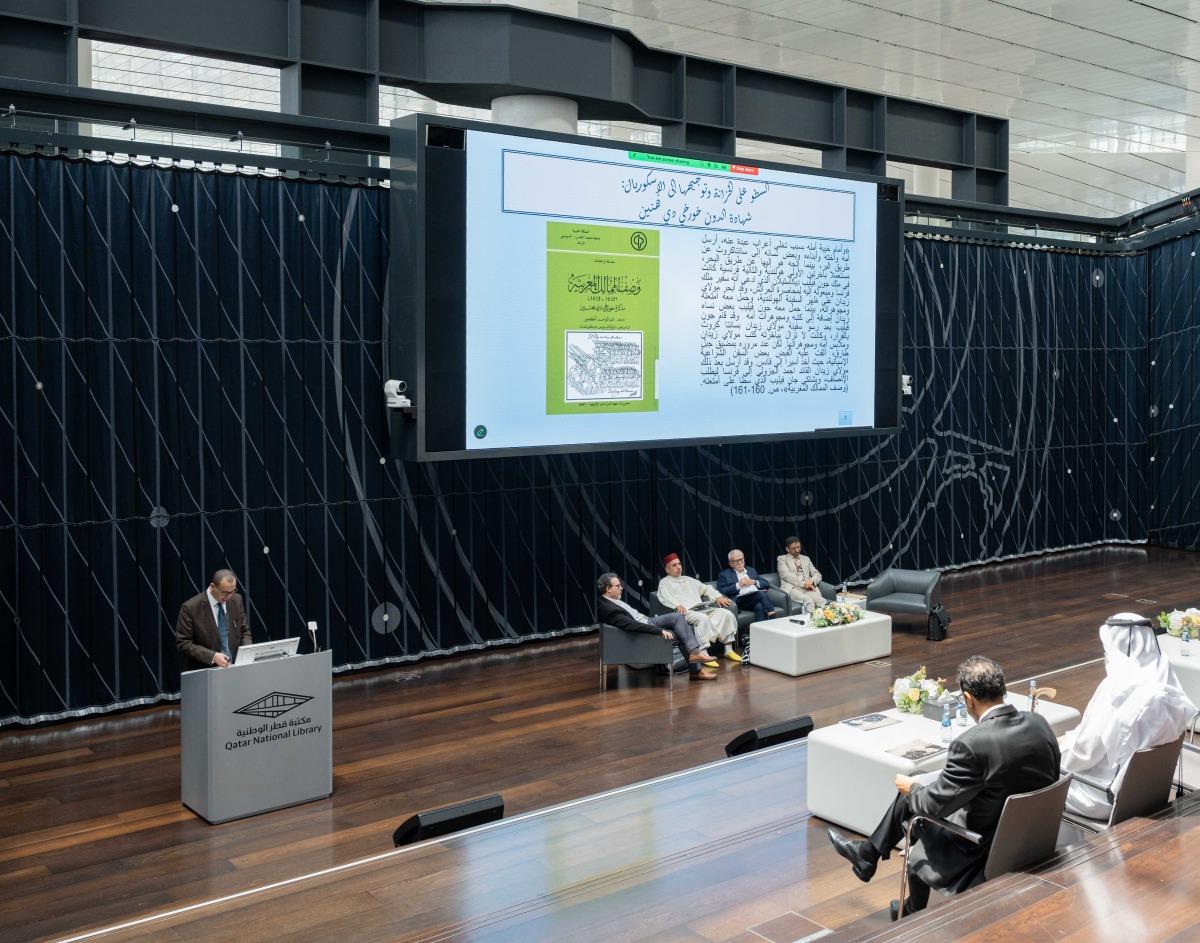
Qatar National Library Symposium Explores Potential Of Modern Technologies
Doha, Qatar: Qatar National Library hosted a symposium bringing together experts and researchers to examine the history and continuing traditions of book and manuscript production in Morocco, with a particular focus on how these traditions influenced the circulation of knowledge across the Islamic world.
Titled“Moroccan Book-making and Manuscript Production: Approaches to Materials, Traditions, and Functions,” the two-day event began yesterday, as part of the Qatar-Morocco Year of Culture and in celebration of Arabic Manuscript Day 2025. It was held under the patronage of the Arab League Educational, Cultural and Scientific Organization (ALECSO) and the Institute of Arabic Manuscripts.
Read Also-
Labour Ministry urges employers to exercise caution in exceptional weather
UDST students' research highlights benefits of black soldier fly farming
MECC educates students about marine environment protection
Qatar Foundation marks World Autism Awareness Day with inclusive community activities
Attendees explored the role of Moroccan bookmakers in preserving and disseminating scholarly works and how these traditions shaped the wider Islamic world during in-depth discussions and interactive workshops.
Experts provided valuable insights into the critical role of scribes and book-makers (warraqoon) in the transmission of knowledge, as well as the practices involved in manuscript editing.
Symposium organiser Dr. Mahmoud Zaki, Manuscript Librarian and Curator at Qatar National Library said:“Bringing together leading voices from Morocco and beyond, this symposium reflects a shared cultural commitment to preserving and reinterpreting the manuscript heritage of the Arab and Islamic worlds.
Marking Arabic Manuscript Day-a cherished initiative launched over a decade ago-and the Qatar–Morocco Year of Culture, the event highlights both the historical depth of Moroccan book-making and the dynamic potential of emerging tools such as artificial intelligence and digital scholarship. From the craftsmanship of scribes to the capabilities of algorithms, it bridges past and present in a dialogue that shapes the future of manuscript studies.”
The symposium also shed light on the distinctive characteristics of Moroccan and Western Islamic manuscripts, drawing parallels with Eastern Islamic traditions and exploring the transmission of knowledge from early scribes, bookmakers, and collectors to contemporary scholars. It further highlighted the contributions of Moroccan scholars such as Mohammed al-Manouni and Ahmed Chouqui Binebine in the preservation and study of manuscript heritage.

Legal Disclaimer:
MENAFN provides the
information “as is” without warranty of any kind. We do not accept
any responsibility or liability for the accuracy, content, images,
videos, licenses, completeness, legality, or reliability of the information
contained in this article. If you have any complaints or copyright
issues related to this article, kindly contact the provider above.


















Comments
No comment